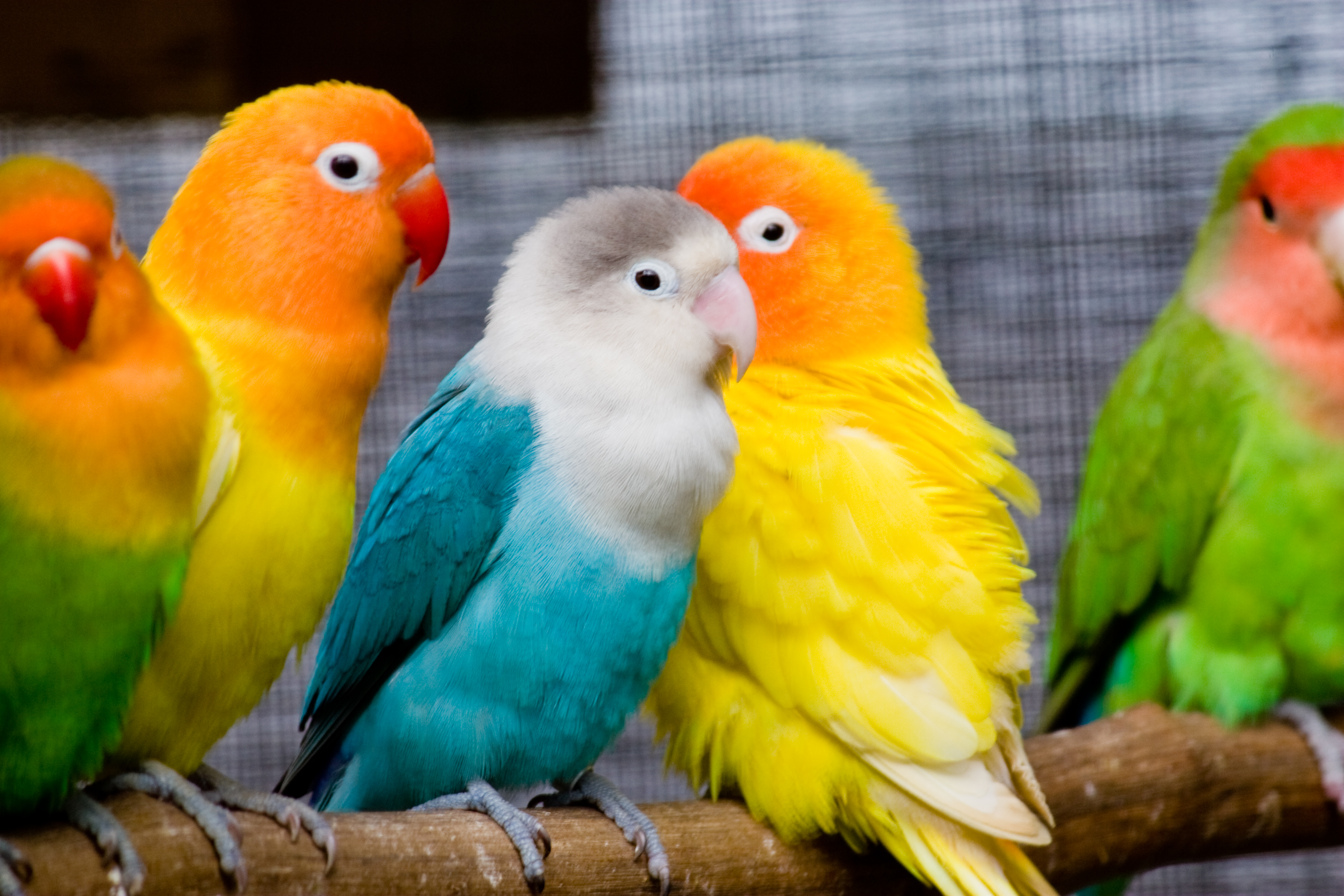Deciding whether to get a male or female parrot is not always easy. Each gender has its own physical and behavioral characteristics, so it is important to consider the traits you are looking for before making a decision.
Personality:
Female parrots are generally known to be quieter and more affectionate than males. However, when females bite, they may bite harder than males, perhaps due to the need to protect their young from harm.
This does not apply to all parrot species. For example, female Amazon parrots become aggressive during the spring, while other species become more loving and affectionate towards their owners.
Egg-Laying Activity:
Laying eggs is demanding on female parrots. Therefore, females need more nutrients (protein, calcium, phosphorus, and magnesium) to produce healthy eggs with strong eggshells.
If a female does not receive enough of these nutrients, she may become egg-bound, which is a life-threatening condition. Dystocia occurs when the female is unable to pass her eggs through the cloaca.
Many new parrot owners are surprised to find unfertilized eggs at the bottom of the cage that do not hatch. However, even a lone female parrot can lay eggs if her hormones are stimulated.
Size:
Male parrots typically have larger, stronger, and heavier bodies with larger, flatter heads. This size difference is due to their need to attract female attention against the competition of other dominant males.
This is not the case in all parrot species, as some species match the size of males, but females are rarely larger – they are usually the same size, if not smaller.
Feather Colors:
Male parrots rely on their bright feathers during mating season to look attractive. Feather color and quality indicate good health, so the brighter the plumage, the more likely the parrot is to have healthy offspring.
Personality:
Male parrots enjoy playing more than females and are more likely to sing and talk. They may become less playful with their owners in the presence of another male bird, but this depends on their personality.
Despite their outgoing nature, male parrots can become aggressive. Although they do not bite as much or as hard as females, they may have more challenging care needs.
Do Male or Female Parrots Talk More?
There is no definitive answer to whether male or female parrots are better talkers.
Male cockatiels and budgies develop larger vocabularies than females. This is partly due to their instincts, as males tend to be more expressive in the wild.
Males are also more social, so they mimic the sounds of their flocks. In captivity, their owners become part of their flocks, so they mimic words.
However, this does not apply to all parrot species. While some parrot breeds are more advanced in speaking, females can be just as talkative as males. Amazons, African greys, and macaws are just as talented at mimicking words and phrases as their male counterparts.
A parrot’s personality, willingness to learn to talk, and the interaction between the bird and the owner are all critical factors.
Parrots do not learn to talk unless they are trained, so it takes time, patience, and perseverance on the part of the owner to develop this skill. If a parrot does not want to learn to talk, it will not do so.
Are Male Parrots More Aggressive?
Female parrots are more commonly seen as calmer, quieter birds. However, the female is the dominant and territorial sex in Eclectus lovebirds, but this is an exception to the rule.
This does not mean that all male parrots are aggressive. However, they may be more likely to engage in aggressive behaviors such as biting, screaming, and destructive chewing.
Conclusion:
There is no right or wrong answer when choosing a male or female parrot. The best choice depends on your individual goals, needs, and budget.
Here are some additional considerations to keep in mind when choosing a parrot:
- Your goals for owning a parrot: If you are looking for a companion pet, a quieter, less aggressive female may be the better option. If you want a bird that can talk, a male may be more likely to learn words and phrases.
- Your living space: Parrots require a lot of space to fly and play. If you have limited space, a smaller male may be the better option.
- Your budget: Parrots
Author Profile

- Hello, I'm an American writer named Isabella. I love writing about birds and pets, and I have a deep passion for beautiful birds. I am currently studying veterinary medicine, and I am 21 years old, hailing from Texas.
Latest entries
 lutino alexandrineMarch 5, 2024The Lutino Cockatiel: A Yellow Gem in the Avian World
lutino alexandrineMarch 5, 2024The Lutino Cockatiel: A Yellow Gem in the Avian World UncategorizedDecember 28, 2023How to know the age of a parrot
UncategorizedDecember 28, 2023How to know the age of a parrot UncategorizedOctober 30, 2023The Parrot Gender Paradox: What You Need to Know Before Choosing a Bird
UncategorizedOctober 30, 2023The Parrot Gender Paradox: What You Need to Know Before Choosing a Bird UncategorizedOctober 30, 2023The problems that parrots face in captivity
UncategorizedOctober 30, 2023The problems that parrots face in captivity






This webpage is outstanding. The site owner’s passion is evident in the excellent content. I’m in awe and anticipate reading more amazing pieces like this one.